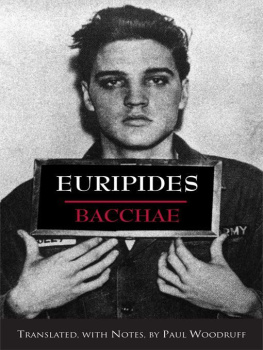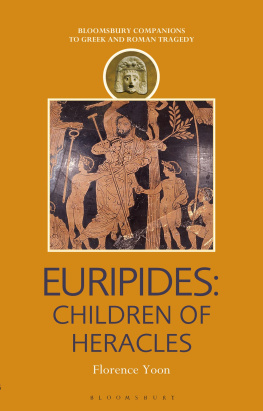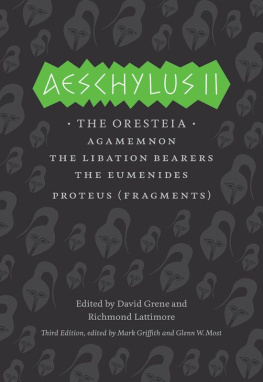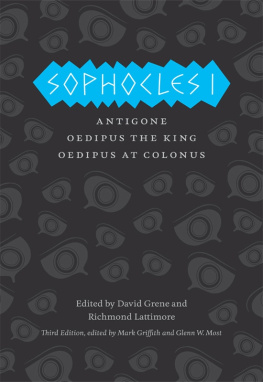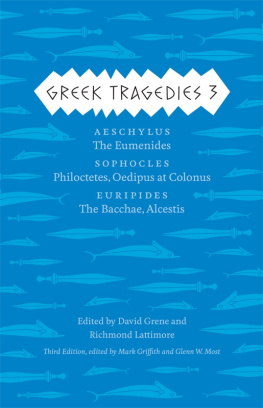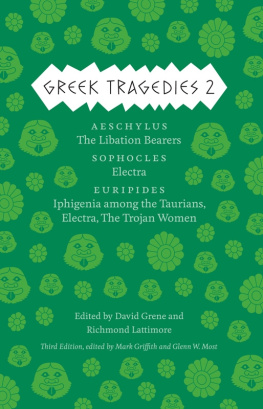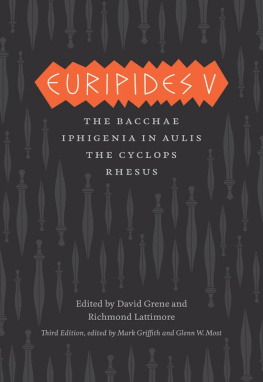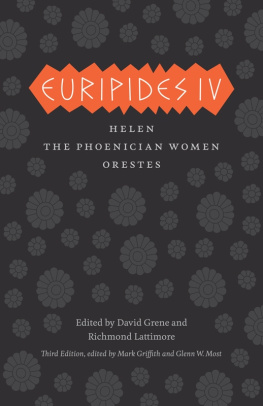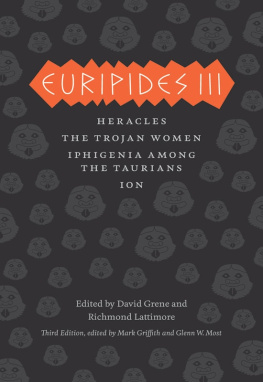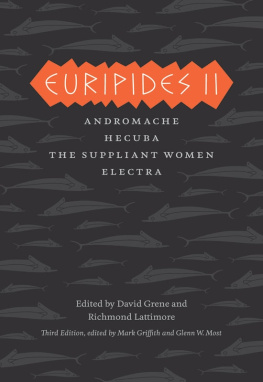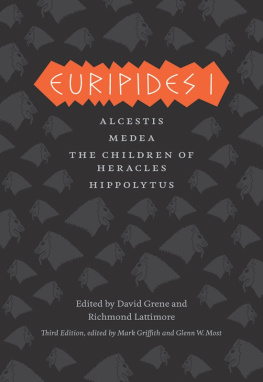Euripides - Heracles and Other Plays
Here you can read online Euripides - Heracles and Other Plays full text of the book (entire story) in english for free. Download pdf and epub, get meaning, cover and reviews about this ebook. City: London, year: 2009;2002, publisher: Penguin Books Ltd, genre: Religion. Description of the work, (preface) as well as reviews are available. Best literature library LitArk.com created for fans of good reading and offers a wide selection of genres:
Romance novel
Science fiction
Adventure
Detective
Science
History
Home and family
Prose
Art
Politics
Computer
Non-fiction
Religion
Business
Children
Humor
Choose a favorite category and find really read worthwhile books. Enjoy immersion in the world of imagination, feel the emotions of the characters or learn something new for yourself, make an fascinating discovery.

- Book:Heracles and Other Plays
- Author:
- Publisher:Penguin Books Ltd
- Genre:
- Year:2009;2002
- City:London
- Rating:3 / 5
- Favourites:Add to favourites
- Your mark:
- 60
- 1
- 2
- 3
- 4
- 5
Heracles and Other Plays: summary, description and annotation
We offer to read an annotation, description, summary or preface (depends on what the author of the book "Heracles and Other Plays" wrote himself). If you haven't found the necessary information about the book — write in the comments, we will try to find it.
Heracles and Other Plays — read online for free the complete book (whole text) full work
Below is the text of the book, divided by pages. System saving the place of the last page read, allows you to conveniently read the book "Heracles and Other Plays" online for free, without having to search again every time where you left off. Put a bookmark, and you can go to the page where you finished reading at any time.
Font size:
Interval:
Bookmark:

HERACLES AND OTHER PLAYS
EURIPIDES , the youngest of the three great Athenian playwrights, was born around 485 BC of a family of good standing. He first competed in the dramatic festivals in 455 BC , coming only third; his record of successes in the tragic competitions is lower than that of either Aeschylus or Sophocles. There is a tradition that he was unpopular, even a recluse; we are told that he composed poetry in a cave by the sea, near Salamis. What is clear from contemporary evidence, however, is that audiences were fascinated by his innovative and often disturbing dramas. His work was controversial already in his lifetime, and he himself was regarded as a clever poet, associated with philosophers and other intellectuals. Towards the end of his life he went to live at the court of Archelaus, king of Macedon. It was during his time there that he wrote what many consider his greatest work, the Bacchae. When news of his death reached Athens in early 406 BC , Sophocles appeared publicly in mourning for him. Euripides is thought to have written about ninety-two plays, of which seventeen tragedies and one satyr-play known to be his survive; the other play which is attributed to him, the Rhesus, may in fact be by a later hand.
JOHN N. DAVIE was born in Glasgow in 1950, and was educated at the High School of Glasgow, Glasgow University and Balliol College, Oxford, where he wrote a thesis on Greek tragedy. From 1975 to 1984 he taught Classics at Harrow, before moving to St Pauls School to become Head of Classics, where he still teaches. He is the author of two articles on the problems of writing favourably about monarchy in a democratic society such as fifth-century BC Athens. He is a member of the Hellenic Societys visiting Panel of Lecturers.
RICHARD RUTHERFORD was born in Edinburgh in 1956, and was educated at Robert Gordons College, Aberdeen, and at Worcester College, Oxford. Since 1982 he has been Tutor in Greek and Latin Literature at Christ Church, Oxford. He is the author of a number of books and articles on classical authors, including a commentary on books 19 and 20 of Homers Odyssey (1992), and The Art of Plato: Ten Essays in Platonic Interpretation (1995).
EURIPIDES
HERACLES AND OTHER PLAYS
Translated by JOHN DAVIE ,
with an introduction and notes by
RICHARD RUTHERFORD
PENGUIN BOOKS
PENGUIN BOOKS
Published by the Penguin Group
Penguin Books Ltd, 80 Strand, London WC2R 0RL, England
Penguin Putnam Inc., 375 Hudson Street, New York, New York 10014, USA
Penguin Books Australia Ltd, 250 Camberwell Road, Camberwell, Victoria 3124, Australia
Penguin Books Canada Ltd, 10 Alcorn Avenue, Toronto, Ontario, Canada, M4V 3B2
Penguin Books India (P) Ltd, II Community Centre, Panchsheel Park, New Delhi 110 017, India
Penguin Books (NZ) Ltd, Private Bag 102902, NSMC, Auckland, New Zealand
Penguin Books (South Africa) (Pty) Ltd, 24 Sturdee Avenue, Rosebank 2196, South Africa
Penguin Books Ltd, Registered Offices: 80 Strand, London WC2R 0RL, England
www.penguin.com
This translation first published 2002
Translation copyright John Davie, 2002
Introduction and notes copyright Richard Rutherford, 2002
All rights reserved
The moral right of the translator and editor has been asserted
Except in the United States of America, this book is sold subject to the condition that it shall not, by way of trade or otherwise, be lent, re-sold, hired out, or otherwise circulated without the publishers prior consent in any form of binding or cover other than that in which it is published and without a similar condition including this condition being imposed on the subsequent purchaser
ISBN: 978-0-14-196093-7
I portray men as they should be, but Euripides portrays them as they are.
(Sophocles, quoted by Aristotle, Poetics, ch. 25, 1460b334)
Whatever other defects of organization he may have, Euripides is the most intensely tragic of all the poets.
(Aristotle, Poetics, ch. 14, 1453a2830)
I am really amazed that the scholarly nobility does not comprehend his virtues, that they rank him below his predecessors, in line with that high-toned tradition which the clown Aristophanes brought into currency Has any nation ever produced a dramatist who would deserve to hand him his slippers?
(Goethe, Diaries, 22 November 1831)
What were you thinking of, overweening Euripides, when you hoped to press myth, then in its last agony, into your service? It died under your violent hands Though you hunted all the passions up from their couch and conjured them into your circle, though you pointed and burnished a sophistic dialectic for the speeches of your heroes, they have only counterfeit passions and speak counterfeit speeches.
(Nietzsche, The Birth of Tragedy, ch. 10)
Already in his own lifetime Euripides was a controversial figure. Daring in his theatrical innovations, superbly eloquent and articulate in the rhetoric which he gave to his characters, closely in touch with the intellectual life of his time, he has stimulated and shocked audiences and readers not only through the unexpected twists and turns of his plots, but also by the alarming immorality of many of his characters. But before exploring these and other aspects of his work in more detail, we must briefly put him in context, by giving an outline of the earlier history of the Athenian genre of tragedy, and the work of Aeschylus, his great predecessor, and of Sophocles, his older contemporary.
Unlike epic poetry, which was a traditional form familiar throughout the Greek world, tragedy was a relatively new invention in the fifth century BC, and one which was particularly Athenian. Its origins and early development are obscure: if, as Aristotle believed, it originated in a form of choral song, the dithyramb, a song in honour of the god Dionysus, then it had already been transformed before the time of Aeschylus. Ancient tradition held that contests between tragic playwrights had become an established part of the festival known as the City Dionysia (held in March) some time in the 530s, and that the key figure of these early days was a dramatist called Thespis. Our earliest surviving tragedy is Aeschylus Persians, performed in 472, a full sixty years later. The dramas which have survived span the rest of the fifth century, a period of intense political activity and social and intellectual change. Hence generalizations even about the extant dramas will be dangerous, and we must always bear in mind that we have only the tip of the iceberg.
The Athenian tragedies were performed in the open air, in a theatre enormous by modern standards: some experts believe that it could have contained more than 14,000 people, as it certainly could after reconstruction in the fourth century.along passages on either side of the theatre were loosely conceived as leading to different destinations country or city, army camp or seashore, depending on the plot. Actors were all male (even for female parts), normally Athenian citizens; all wore masks and dignified formal dress; speaking actors were almost invariably limited to three in number, but could take on different roles during the play by changing costume and mask offstage. Stage equipment and props were few; the action was largely stylized, even static, with the more violent action conceived as taking place offstage, then being reported to the actors, often in a long narrative speech. All plays were in verse, partly spoken and partly sung; although Euripides made several strides towards more realistic drama, the effect of a Greek tragedy in his time would still have been to move the audience to a distant world, where great figures of the mythical past fought and disputed over momentous issues.
Font size:
Interval:
Bookmark:
Similar books «Heracles and Other Plays»
Look at similar books to Heracles and Other Plays. We have selected literature similar in name and meaning in the hope of providing readers with more options to find new, interesting, not yet read works.
Discussion, reviews of the book Heracles and Other Plays and just readers' own opinions. Leave your comments, write what you think about the work, its meaning or the main characters. Specify what exactly you liked and what you didn't like, and why you think so.

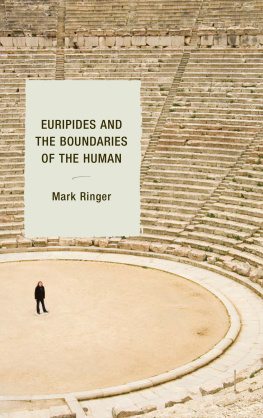
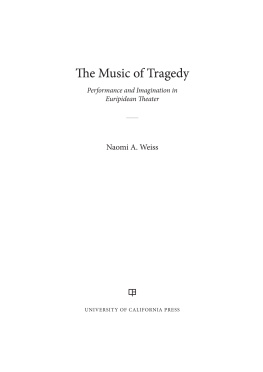

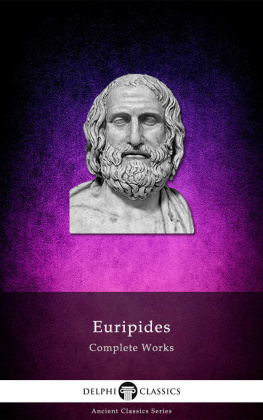
![Euripides - Classic Greek Drama: 10 Plays by Euripides in a Single File [NOOK Book]](/uploads/posts/book/43473/thumbs/euripides-classic-greek-drama-10-plays-by.jpg)
